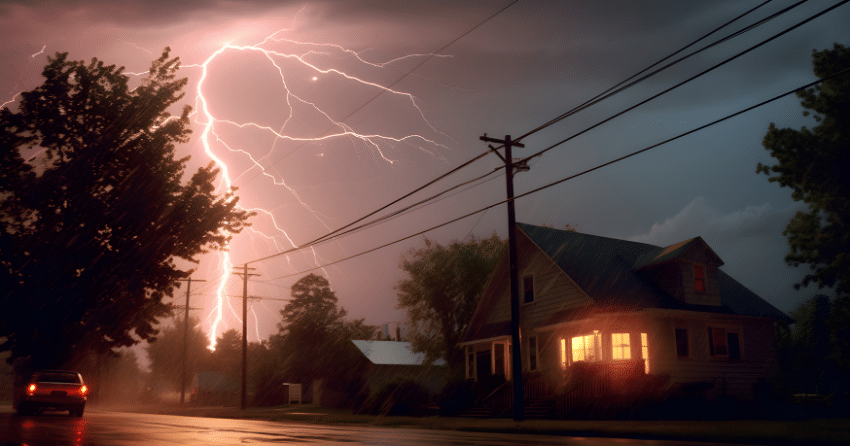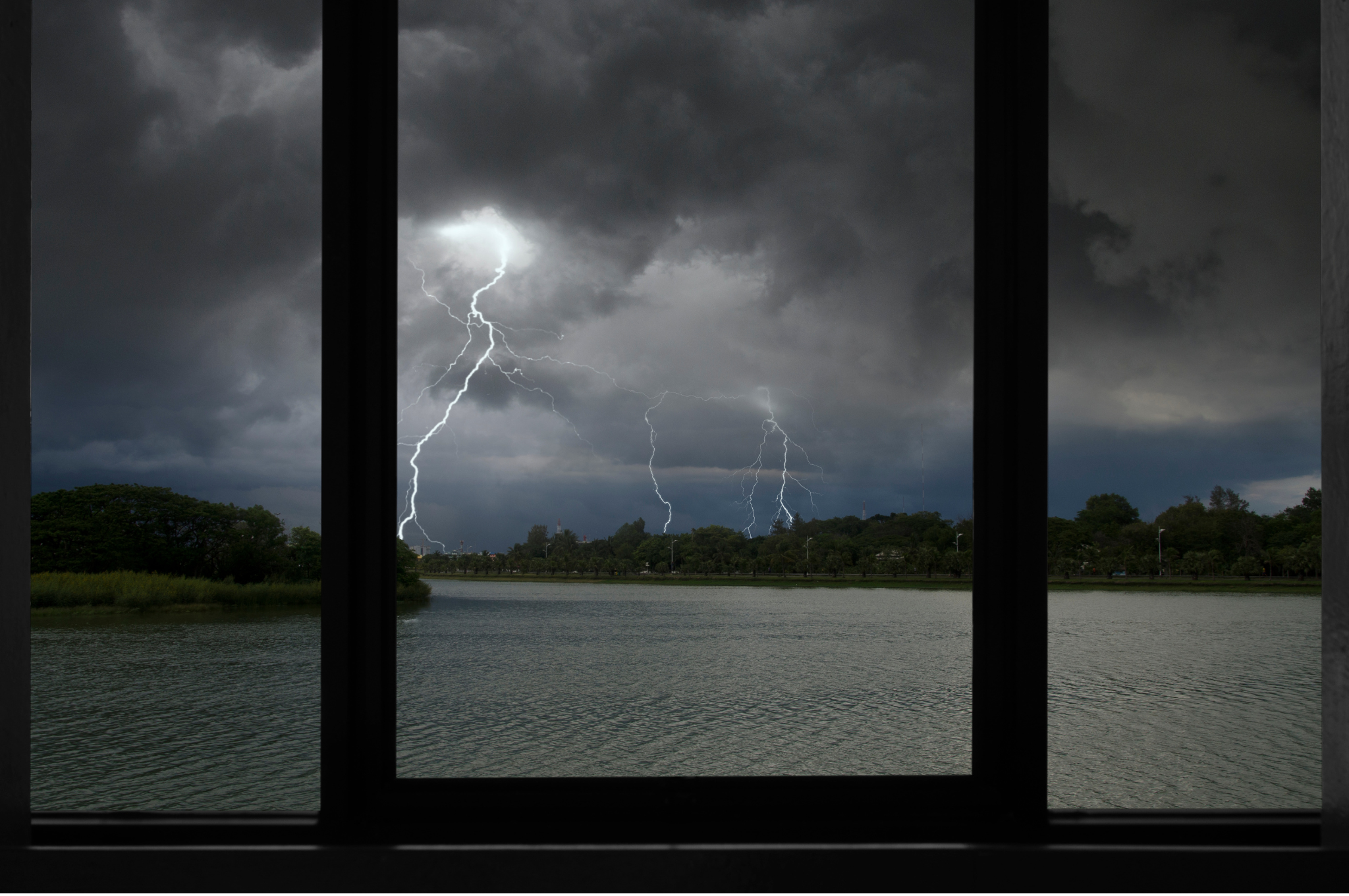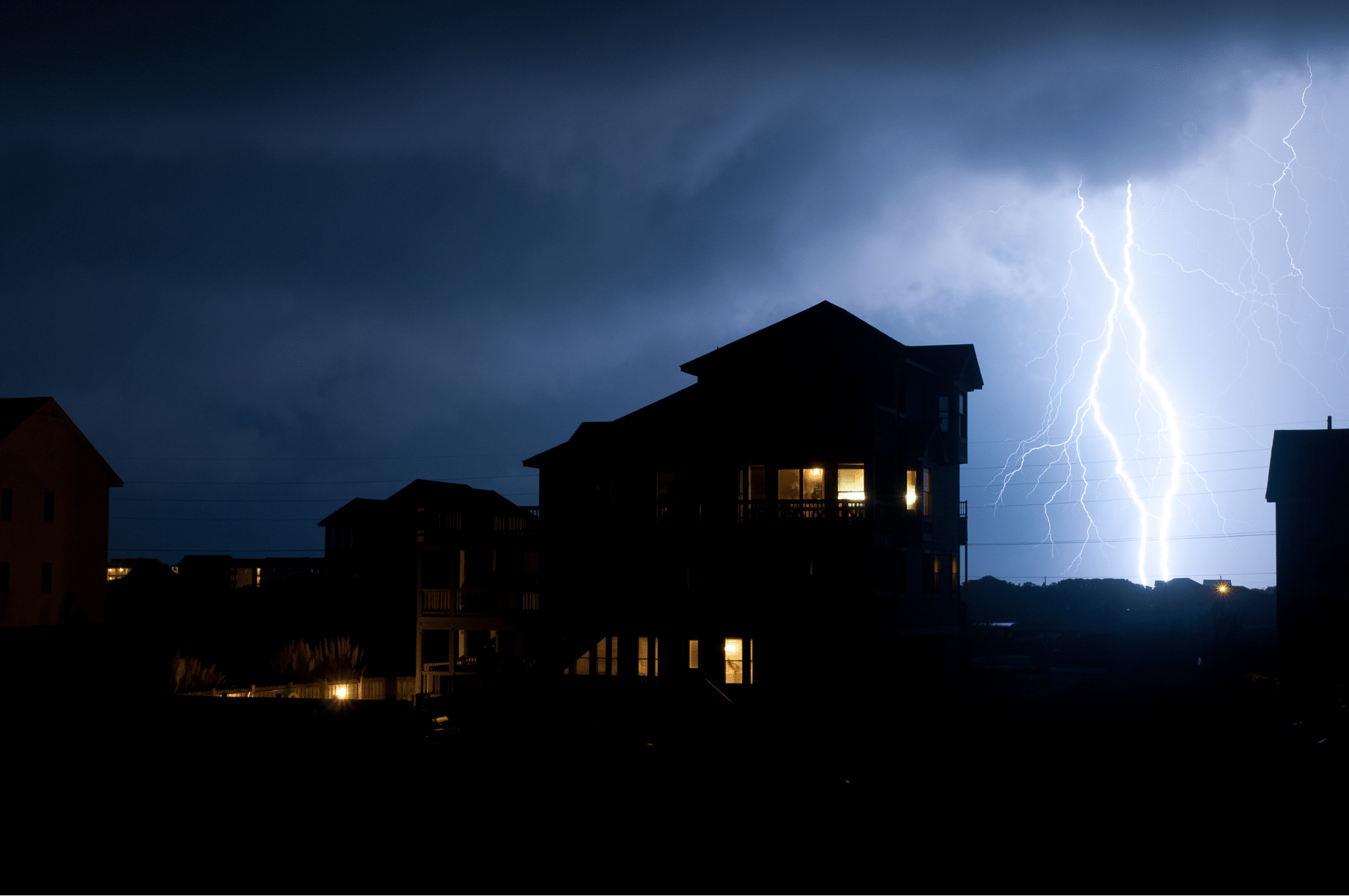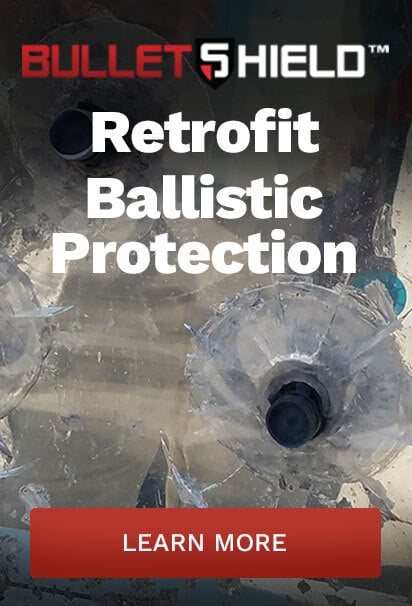The Ultimate Guide to Hurricane Proof Windows

Hurricanes are an increasingly powerful force across the world. According to Axios, damage estimates from hurricane winds are likely to rise from an annual loss of about $18.5 billion in 2023 to $19.9 billion in 2053 — including more than 13.4 million properties newly exposed to tropical storm force and high wind risk.
Why is the damage caused by hurricanes increasing, and how can property-owners prepare? In this comprehensive guide, we’ll take a closer look at the climate-related causes of hurricane damage, alongside the best means to protect your property from a hurricane.
- Hurricanes and Climate Change: What to Know
- How to Protect Windows and Sliding Glass Doors From Hurricanes
- Frequently Asked Questions About Hurricane Windows
Hurricanes and Climate Change: What to Know
Climate change is intrinsically linked to the rise of hurricane damage across the world. The nuances of why, however, are worth discussion. While climate change is not necessarily increasing the amount of hurricanes, it is increasing the severity.
Are Hurricanes Increasing in Frequency?
Although it may seem like it due to increased damage due to tropical storms, hurricanes are not necessarily increasing in frequency. According to NASA, the frequency of hurricanes making U.S. landfall has not increased since 1990, despite significant increased heat in the tropical Atlantic Ocean.
Still, the impact of hurricanes on the United States has notably increased — not in terms of frequency, but in severity. One study tracked Atlantic storms from 1949 through today, then used computer models to see what such storms would look like in 2100. Over the years, and based on the model, the flood and wind risk of hurricanes steadily increases. Another study found that over the period of 1979-2017, the amount of major hurricanes has increased, while smaller hurricanes have decreased.
What Causes Hurricanes to be More Severe?
In short, the main cause of more severe hurricanes is climate change. The impacts of climate changes naturally increase the severity of hurricanes. Two of the leading causes of hurricanes are warm ocean waters and high moisture in the air. As the world heats up, both of these risk factors also increase.
Warmer water leads to an increase in evaporation — adding moisture to the air. This increased moisture leads to more dense, humid air within hurricanes, eventually spurring more intense rates of rainfall through storms. As rainfall increases, so does the wind power of hurricanes, leading storms that would have once been lower level hurricanes to reach category 3, 4, or 5.
How to Hurricane Proof Windows and Sliding Glass Doors
With hurricanes increasing in severity, property-owners need to protect their sliding glass doors and windows. To do so, property-owners should first determine the existing security measures of their glass, before installing hurricane glass or impact-resistant glass.
Are My Sliding Glass Doors Hurricane Proof? Are Hurricane Proof Windows Real?
While resistant glass can minimize the damage caused by hurricanes, there is no such thing as “hurricane proof windows”. Hurricanes can reach incredible levels of destructive power — levels in which no window is safe, no matter its durability.
There are five categories of hurricanes, varying greatly in terms of magnitude and destructive power. Even a Category 1 hurricane reaches speeds of 74 to 95 miles per hour; a Category 5 hurricane can reach speeds of 157 miles per hour, enough to destroy homes outright.
With such unpredictable levels of damage and destruction, it’s impossible to make a window that is truly hurricane proof. In turn, anyone trying to sell genuine hurricane proof windows is dishonest.
Although there is no such thing as a hurricane proof window, property-owners can take concrete steps to protect their homes and businesses from hurricanes. Two such options are hurricane resistant windows and impact resistant windows.
What are Hurricane Sliding Glass Doors and Windows?
Hurricane resistant windows are windows specifically designed to meet building codes and local requirements for protection from hurricane winds. Typically held together by one or more layers of laminate, hurricane windows are flexible —bending rather than breaking in the face of high winds.
If they do break, hurricane resistant windows are designed to do so without shattering into sharp, dangerous smaller pieces. In turn, hurricane windows pose less of a threat than typical glass windows for both hurricane clean-up and remaining indoors to weather a storm.
Although they do offer protection from wind, hurricane resistant windows don’t offer protection against the full suite of threats from hurricanes. Hurricane resistant windows are typically not designed to absorb the impact of hurricane debris — a major threat in the midst of hurricanes. To protect against storm debris, property-owners should install impact-resistant windows.
What are Impact Resistant Windows?
Impact resistant windows are windows treated to withstand and absorb the impact of high velocity threats. Depending on their construction, impact resistant windows can protect against smash & grab crime, active shooters, and storm debris.
Many impact resistant windows are made from polycarbonate. Composed of thermoplastic polymers containing carbonate structures in their chemical makeup, polycarbonate is over 250 times stronger than glass — offering substantial additional protection from storm debris for windows and sliding doors.
Other features of impact resistant windows to minimize hurricane damage may include all-weather adhesives, weather-sealing to prevent water penetration, and durable frames. Each of these features helps frames stay in place when faced with the diverse challenges of hurricanes.
[embedyt] https://www.youtube.com/watch?v=atykGvKz_TA[/embedyt]
Frequently Asked Questions About Hurricane Windows and Sliding Glass Doors
Are Most Windows Hurricane Resistant?
The vast majority of windows are not hurricane resistant. Even the weakest hurricanes reach wind speeds of 74 to 95 miles per hour — enough to easily send flying debris powerful enough to break through typical glass windows. Unless specifically-advertised as such, most windows are not hurricane resistant.
Are Impact Resistant Windows the Same as Hurricane Windows?
Impact resistant windows are not the same as hurricane windows. Hurricane windows are designed specifically to withstand the force of strong hurricane windows, bending rather than breaking and preventing shattering if they do fall. They are not, however, designed to withstand the impact from storm debris.
Impact resistant windows, in turn, can withstand both hurricane winds and the impact of a diverse array of security threats — including high impact storm debris.
What are Advantages of Hurricane Resistant Windows and Doors?
Hurricane resistant windows and doors provide advantages of increased security & safety to glass for properties in areas affected by hurricanes. Built to bend rather than break when exposed to hurricane winds, hurricane resistant windows and doors reduce glass shatter and increase security for properties during hurricanes. However, unlike impact resistant windows and doors, hurricane resistant windows and doors do not protect against debris.
Protect Your Windows From Hurricanes with DefenseLite
DefenseLite is a clear, polycarbonate security system that installs over existing window and door glass to create a durable layer of protection. Combining polycarbonate construction, vented aluminum extrusions, multi-layer thin films, structural adhesives, and security tipped anchors, DefenseLite seamlessly installs over existing glass to absorb and deflect hurricane-related impacts.
Ready to protect your property from the threat of hurricane damage? Contact us today and learn how we can increase your impact security.




